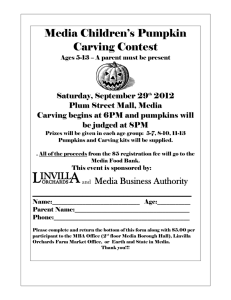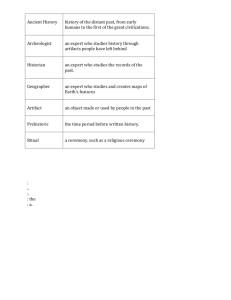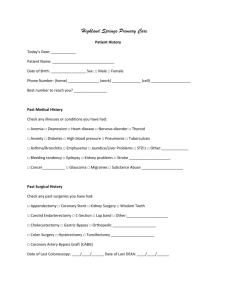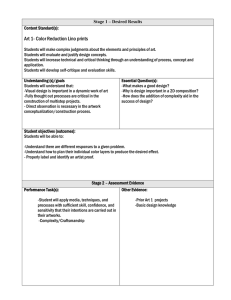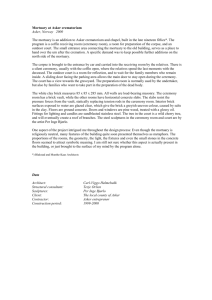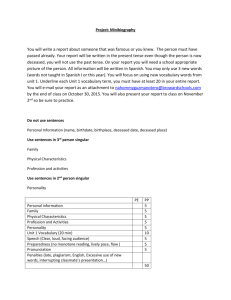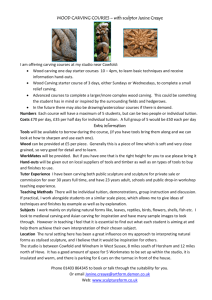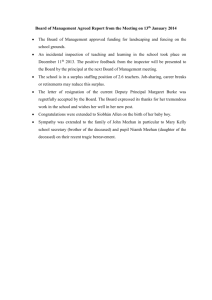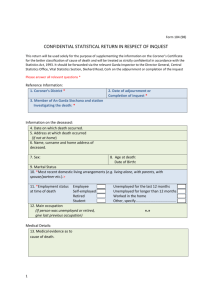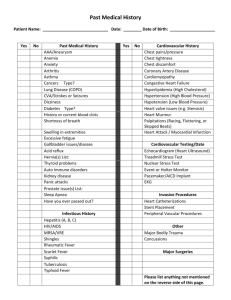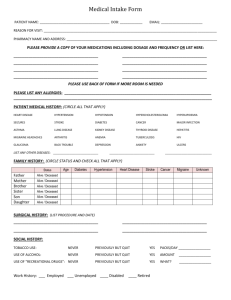Object agency
advertisement
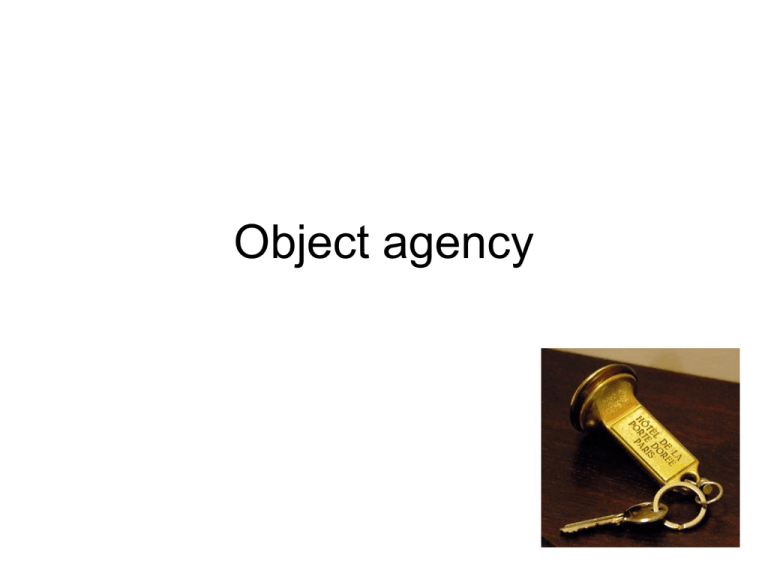
Object agency Agency = the power to act and to affect others • Look in your pockets/bag for an object that you have with you • Take a moment to consider if the object has agency. If so, how does it have agency? Extended agency • Objects as an extension of human capacity (tools), so humans have agency and objects enhance it Material agency • Alfred Gell, recognised the ‘affective power’ of things as a means of enhancing the fame/prestige of the maker/owner • But agents only in so much as they provide a derivative or extended form of human agency (secondary agency) Malangan carving of Papua New Guinea •During mortuary ceremonies of important people are carved and painted •Imbued with life, and with the effective power of the deceased •Displayed for a few hours during the ceremony then ‘killed’ with a gift of shell money •Once ‘killed’ no longer exist, as the gift entitles the donor to ‘remember’ the deceased •During the ceremony the carving objectifies social relationship and past networks/exchanges, and social power. Objects (and people) as actants • Objects and people both have agency – the interaction between them forms networks • Objects have their own agency, they structure your actions Objects with memories • Objects do not contain memory but provide the ground for humans to experience memory • Through a physical semiotics, they cite and index activities, people emotions
